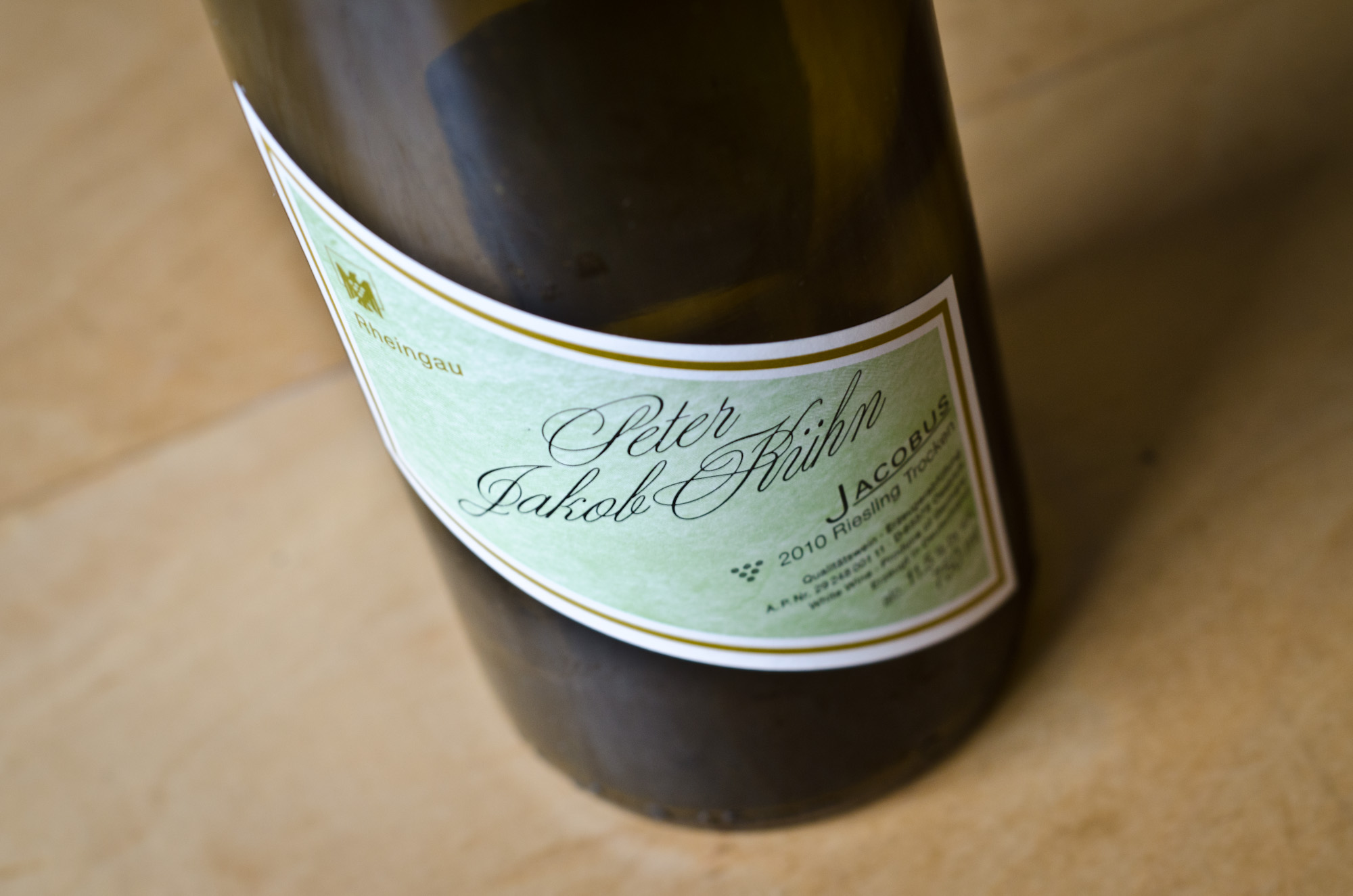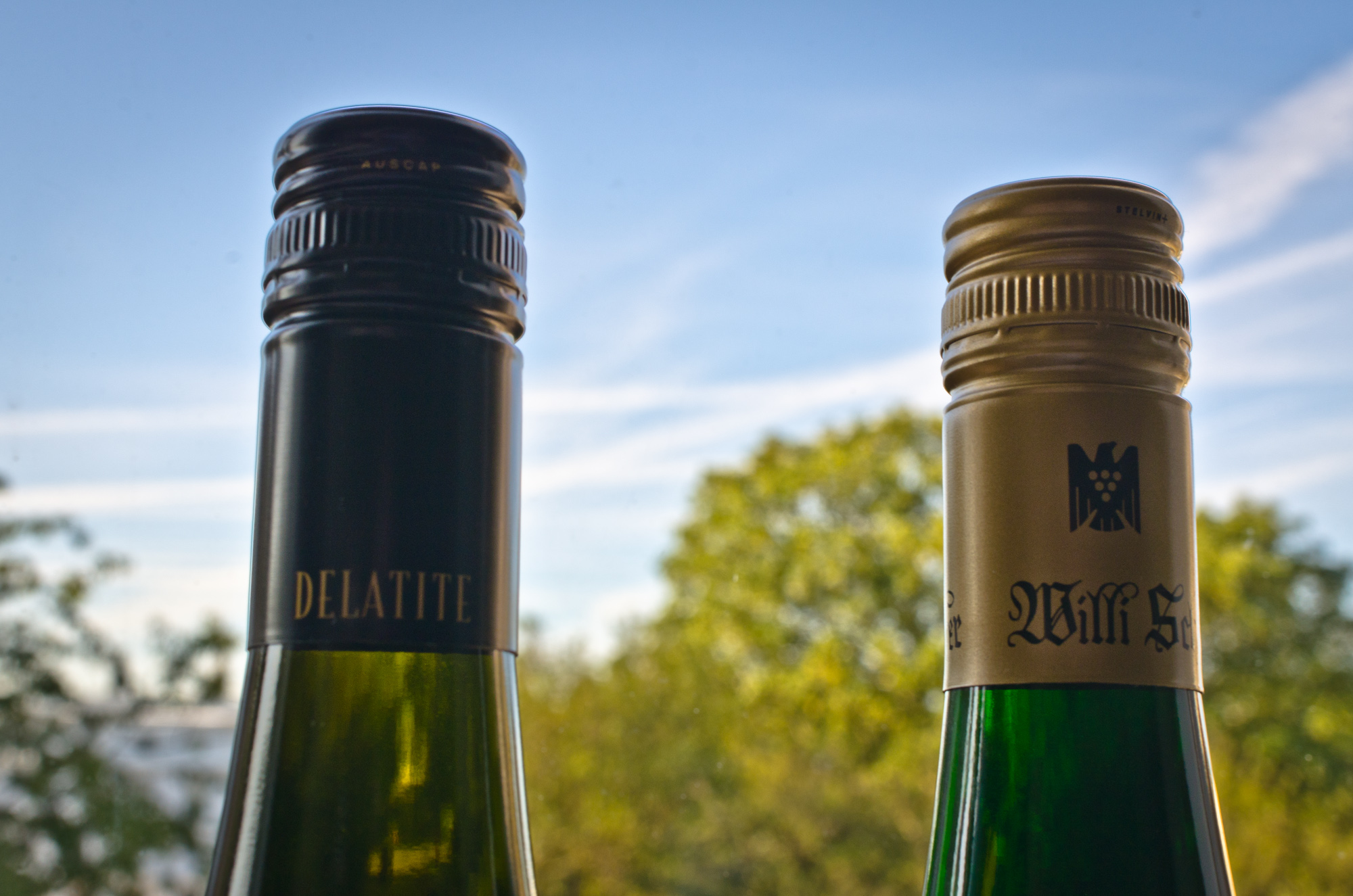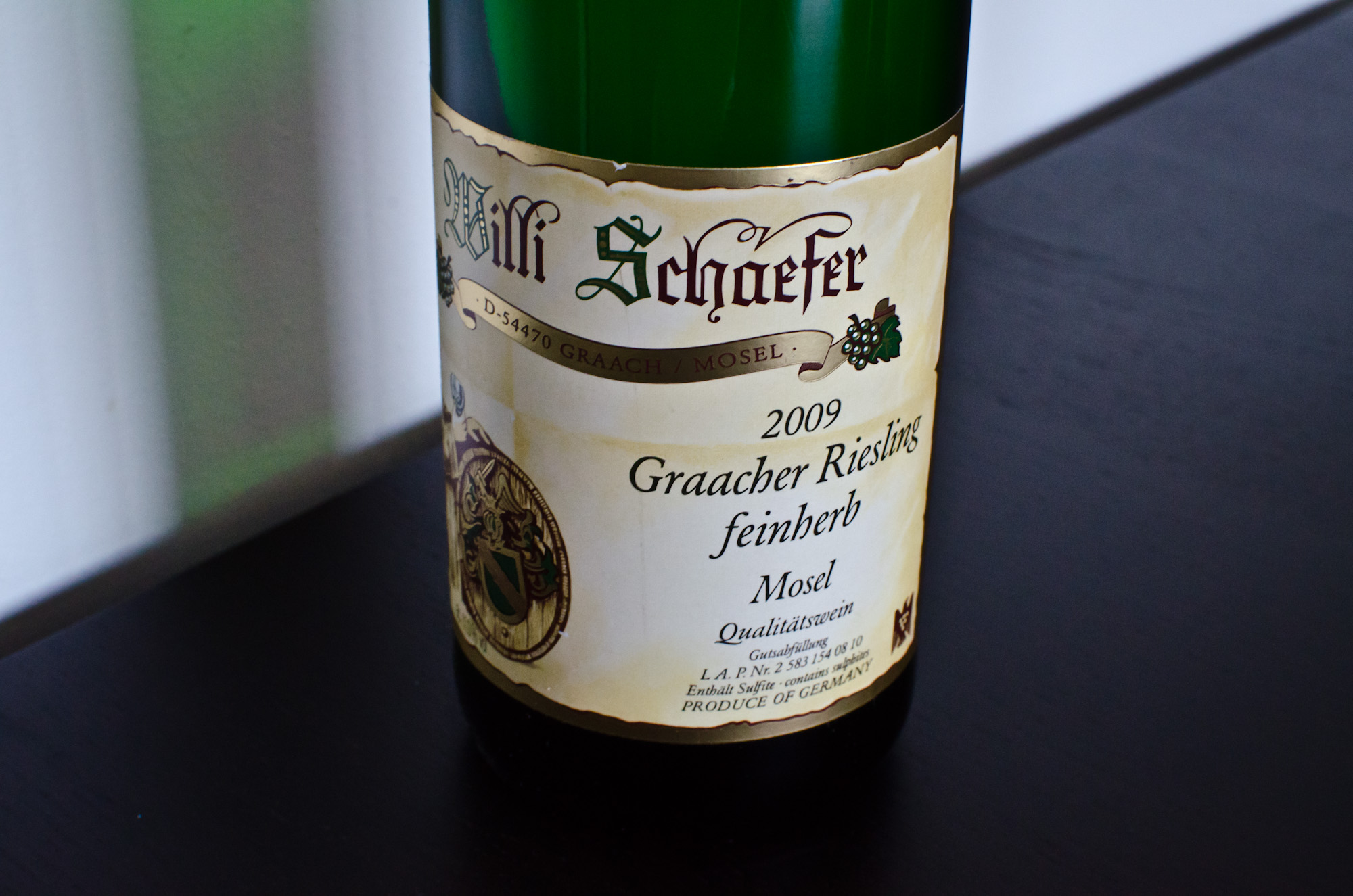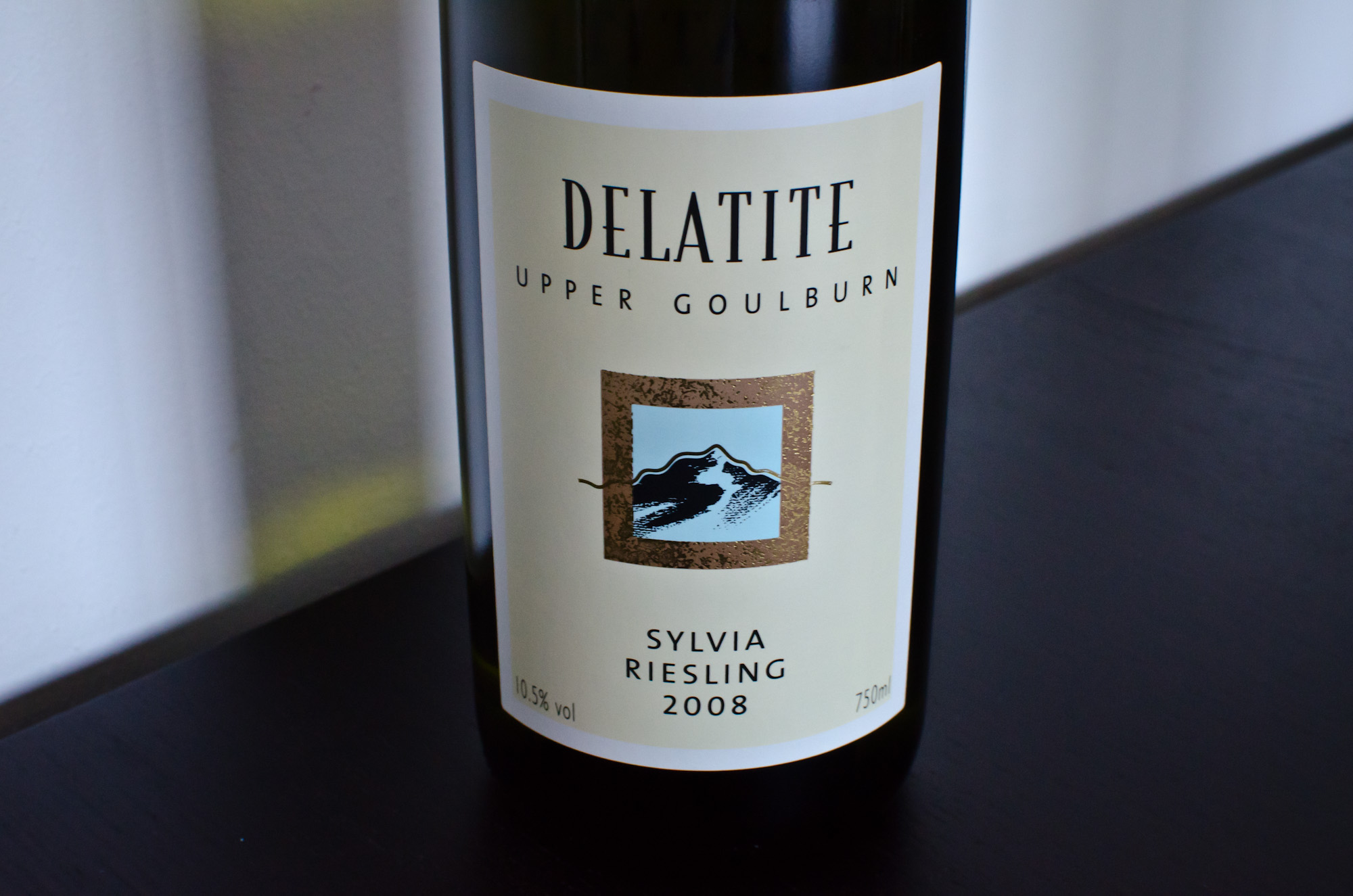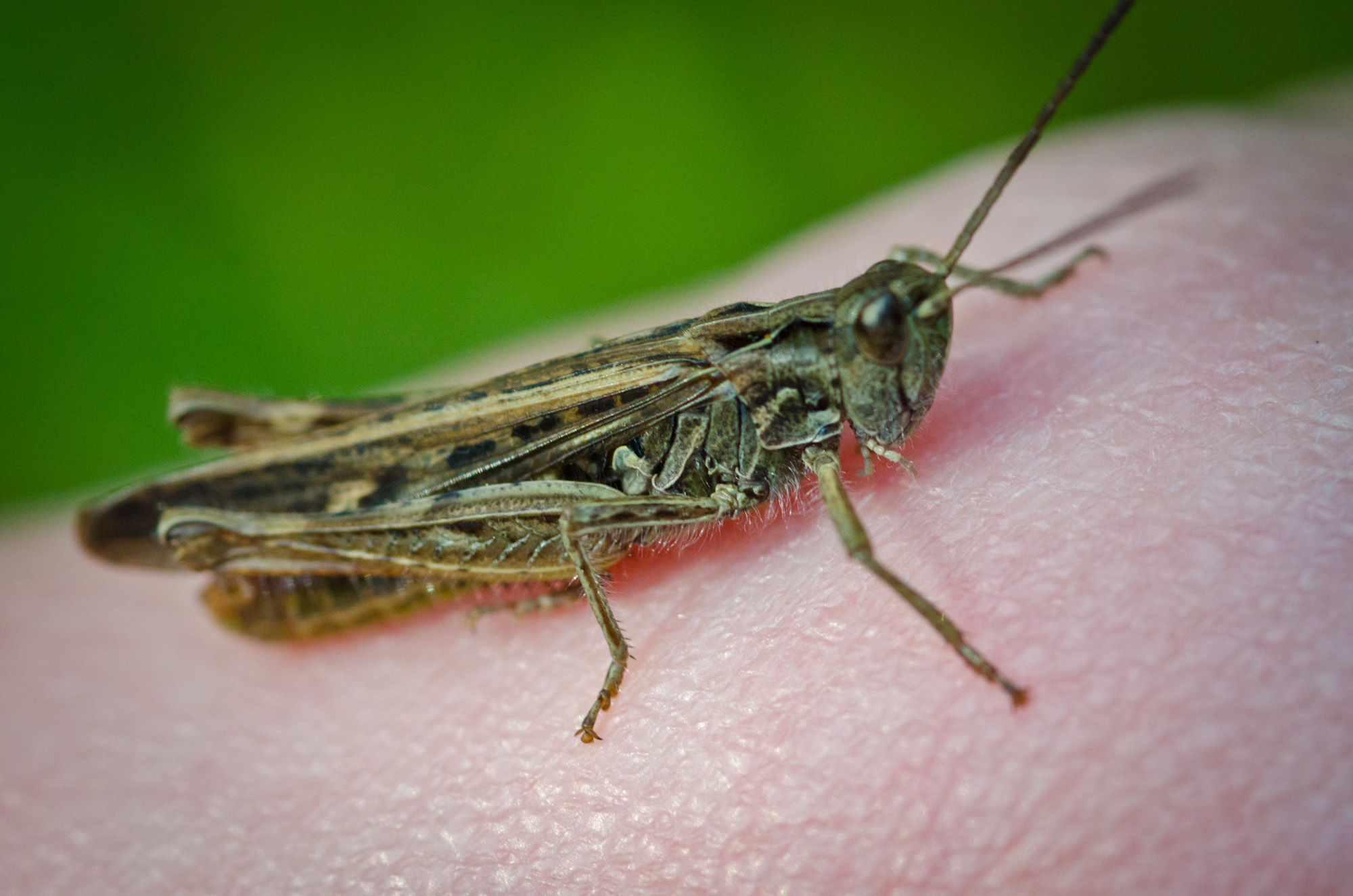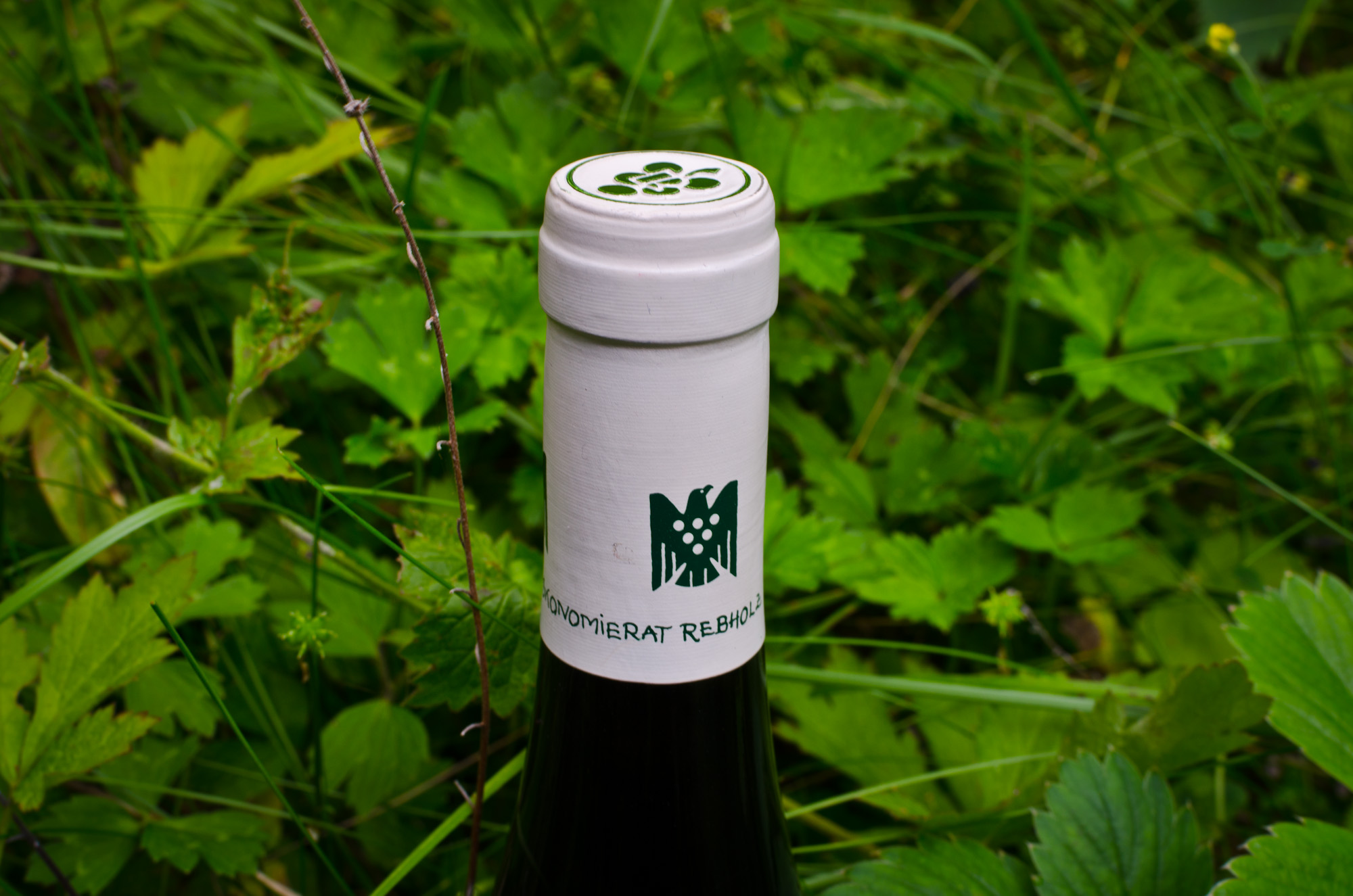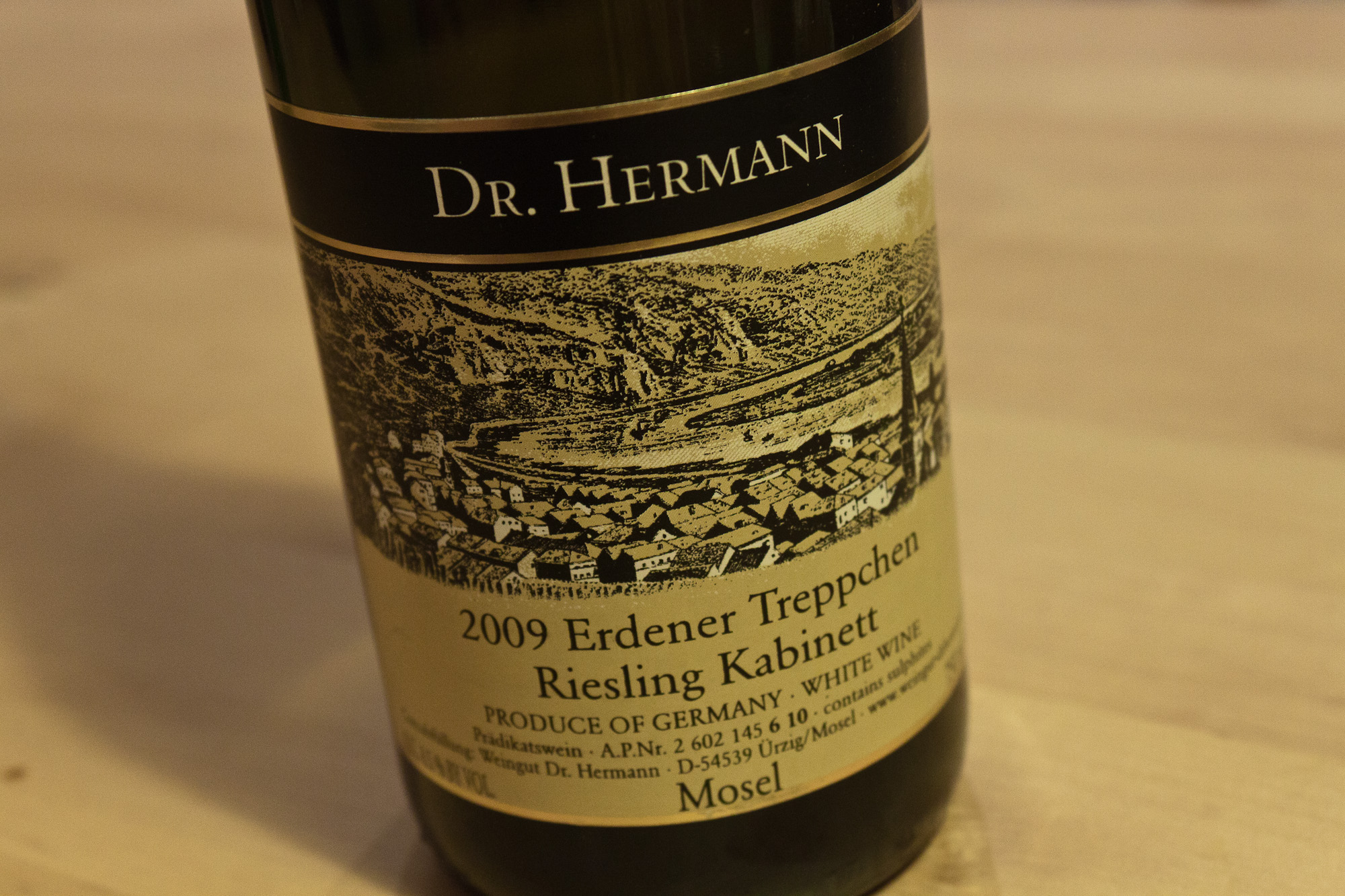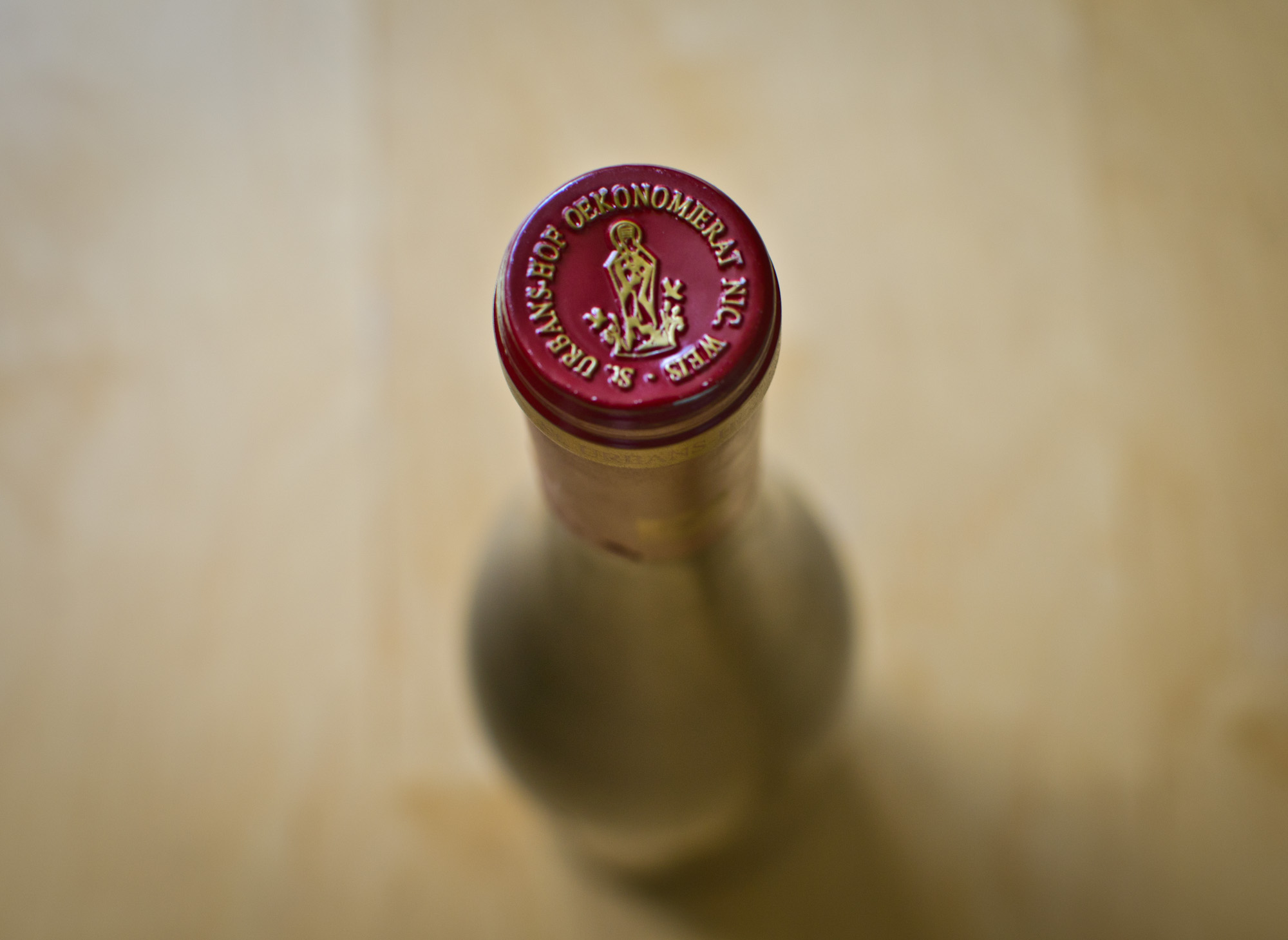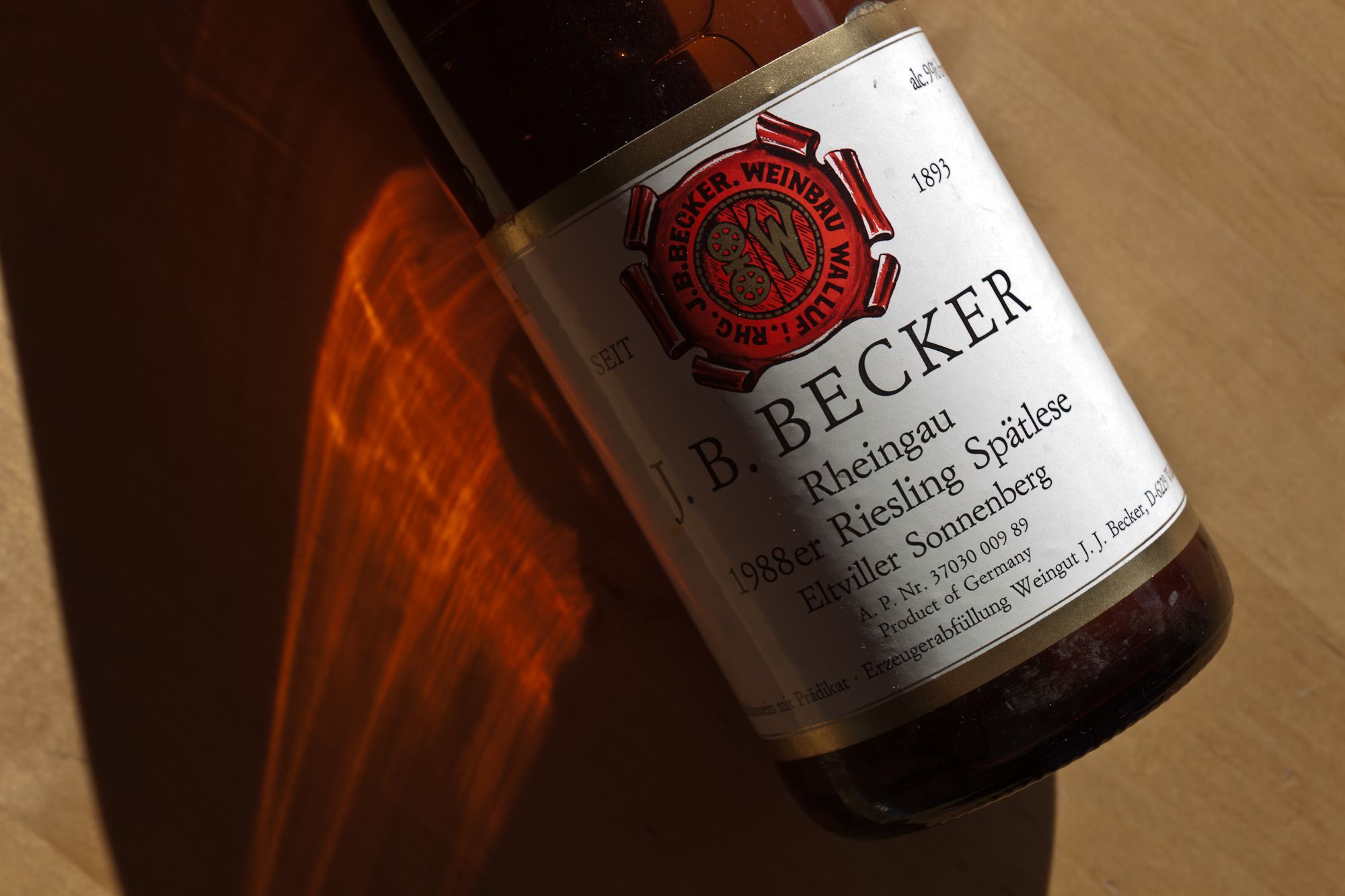Schlosskellerei von Schubert, Maximin Grünhäuser Herrenberg, Riesling Alte Reben trocken, 2009
My fellow Wine Rambler Torsten has instructed me to stick to this blog's core concern, which is German wine, and also to be on my general best behaviour, because a few more winemakers, fellow bloggers and wine business people may look in here these days. Maybe even, nudge nudge, a couple of German wine queens. As to why that is, that will be duly revealed, much to my intense envy, in a few days' time. In the meantime, no Bordeaux, no ill-fated Burgundy projects and no wines dug out of the trash bin.
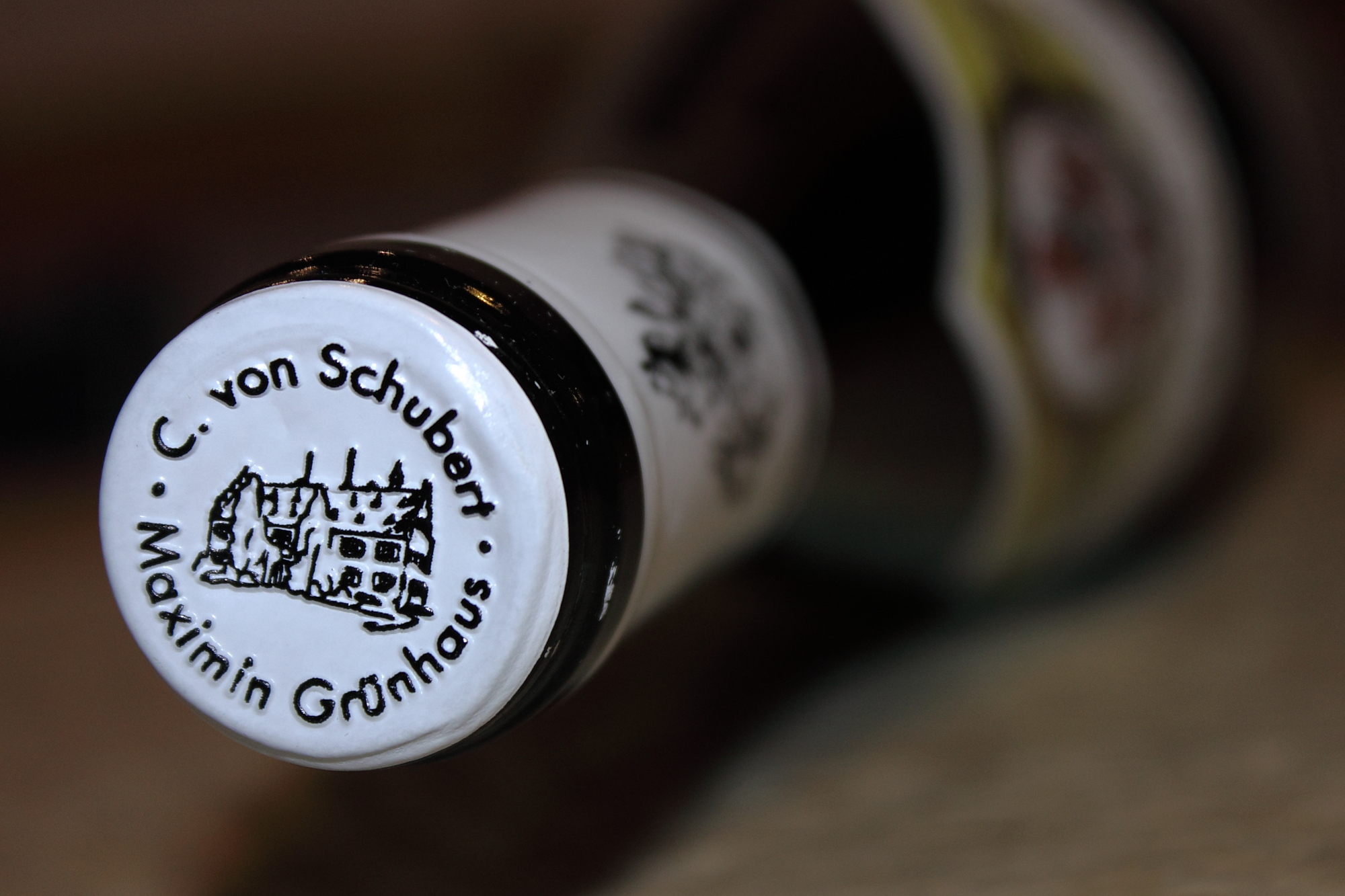
Instead, if it please your majesties, a German classic:

